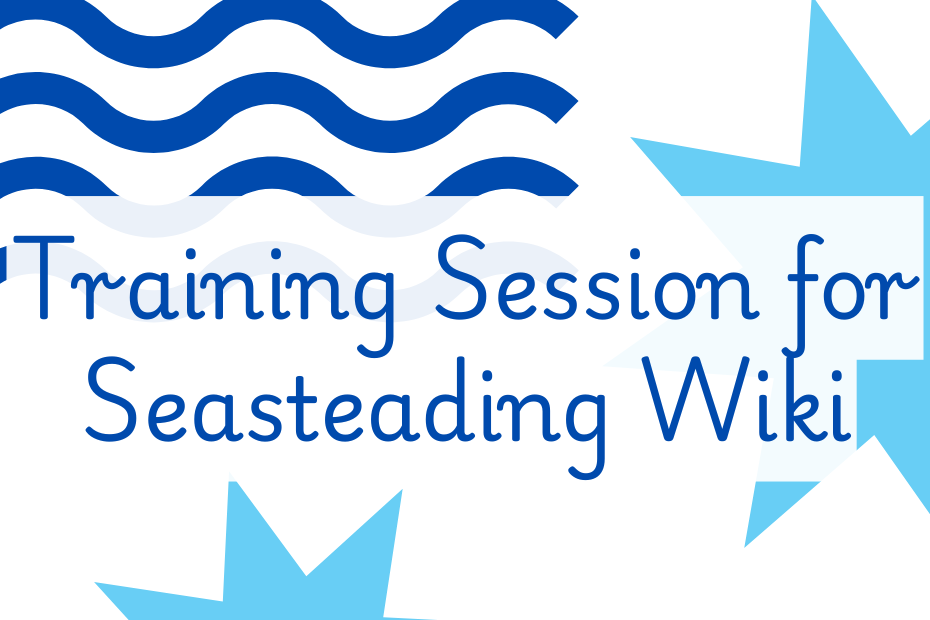 The Seasteading Institute has posted the winners to the 2010 Sink or Swim business plan contest, which you can access by clicking here. Our contestants gave us a glimpse at the future of business at sea, a glimpse which will move us closer to the day when these business plans become a reality. Thanks to all those who participated, to our judges, and to our generous sponsors HumanIPO and Premium Advice.
The Seasteading Institute has posted the winners to the 2010 Sink or Swim business plan contest, which you can access by clicking here. Our contestants gave us a glimpse at the future of business at sea, a glimpse which will move us closer to the day when these business plans become a reality. Thanks to all those who participated, to our judges, and to our generous sponsors HumanIPO and Premium Advice.

Just wanted to just say thanks to the people who took their time and contributed the prize money for the contest. I feel very much honored to be awarded the prize by such a highly qualified panel of judges.
Congratulations to the winners and all who submitted business plans! The ideas on the winner’s page are all appealing. Aquaculture is clearly a possibility, and it would be fascinating to learn how it might be done sustainably and with high quality relatively far from shore.
The human potential lost to poverty and oppressive governments (which of course often foster poverty and misery through corruption and broken political systems (large swaths of Africa, North Korea, Burma, etc., even India and China come to mind)) makes the orphanage/refuge school an interesting idea too. First world countries are also far less efficient than they could be at allowing human potential to fully develop.
Surprisingly, the one that intrigues me most is aribitration services based at sea. The lack of much existing jurisdiction there makes arbitration a fascinating one to do from a Seastead. How would arbitration be done in an environment without much regulation? It’s very much an open question, and that’s what makes it particularly interesting. It’s a bit analogous to microgravity experiments in space; the freedom from gravity in space is reminiscent of the relative lack of government intervention on the open ocean. It would be interesting to experiment with arbitration in a low-regulation environment, as it’s useful to do low-gravity science experiments in space.
Thanks also to the Seasteading Institute for coming up with a great contest. Seasteads will need successful businesses for them to be viable, so this was a brilliant move.
Thinking about it further, Aquaculture is probably the killer app for seasteading and vice versa. I hope Mike gets some uptake. A viable business is the key to getting Seasteads up and running. Aquaculture isn’t as sexy as some of the other ideas, but is desperately needed, likely profitable, highly practical, very doable etc. Having other startups already doing it in more limited ways in coastal waters is actually very helpful sicne it makes a business case clearer.
A very nice feature of it is that it can be developed as a working business working from shore prior to building a seastead, then setting up a seastead for offshore processing of the seafood and permanent housing for the crew when the volume justifies it. It is also adaptable to a slow moving shipsead with the Aquapod cages, which can be towed. Mike Goudy’s Ocean Drifter from the late nineties looks just like a single family seastead on a spar bouy with an aquaculture pen attached.